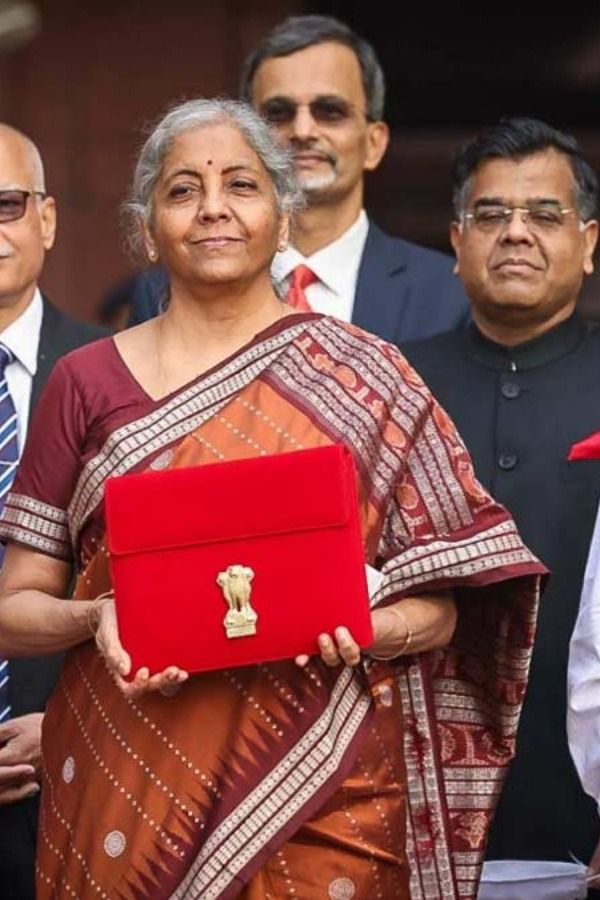Emphasis on Artificial Intelligence in Education, Nuclear Energy Initiatives, ₹10,000 Crore Enhancement for Startups, and More
Overview of Budget 2025 Announcements: On February 1, Union Finance Minister Nirmala Sitharaman presented the Union Budget for 2025-26 in the Lok Sabha, emphasizing advancements in technologies such as artificial intelligence and broadband connectivity. The budget also introduced significant projects, including the National Nuclear Energy Mission and the National Geospatial Mission, alongside funding initiatives aimed at supporting startups across the nation.
The following is a summary of the budget announcements pertaining to artificial intelligence, deep technology, electronics manufacturing, startups, and other sectors.
Establishment of a Centre of Excellence in AI for Education
Minister Sitharaman announced the establishment of a new Centre of Excellence for Artificial Intelligence in Education, with an allocation of ₹500 crore. In the previous Union Budget for 2023-24, she had introduced three Centres of Excellence in AI focusing on agriculture, health, and sustainable urban development. The government will also enhance domestic manufacturing capabilities by identifying sectors based on objective criteria. The Finance Minister highlighted the significant opportunities presented by Industry 4.0, which necessitates a highly skilled workforce.
Additionally, the government will establish five National Centres of Excellence for Skilling to equip the youth with industry-relevant skills. “These partnerships will encompass curriculum design, trainer training, a skills certification framework, and periodic evaluations,” stated Sitharaman.
In response to this announcement, Dr. Jyotsana Singh, Associate Dean of Computer Engineering at NMIMS Chandigarh, remarked, “AI-powered tools will enhance personalized learning, bridging gaps in accessibility and skill development across various disciplines. By integrating AI into education, we are not only improving learning outcomes but also preparing students to confidently navigate an AI-driven economy.”
National Nuclear Energy Mission
As part of its energy transition strategy, the government aims to generate a minimum of 100 GW of nuclear energy by 2047. To advance this objective, Minister Sitharaman announced the establishment of a research and development unit focused on Small Modular Reactors (SMRs), with an allocation of ₹20,000 crore. “At least five indigenously developed SMRs will be operational by 2033,” she stated. The government will also amend the Atomic Energy Act and the Civil Liability for Nuclear Damage Act to encourage active collaboration with the private sector.
The Indian government’s renewed emphasis on nuclear energy aligns with the interests of major technology companies seeking to utilize this energy source to power the extensive data centers that drive the AI revolution. Prominent tech firms such as Google, Microsoft, and Meta are investing significantly in small modular reactors due to their cost-effectiveness, rapid construction timelines, and scalability compared to traditional nuclear power plants.
Electronics Goods Manufacturing
The government has proposed reductions and, in certain instances, exemptions to the basic customs duty (BCD) rates imposed on various electronic components. The BCD is an indirect tax levied on imported goods, typically calculated based on the assessed value of the product. “In alignment with our ‘Make in India’ initiative and to rectify the inverted duty structure, I propose to increase the BCD on Interactive Flat Panel Displays (IFPD) from 10% to 20%,” stated Sitharaman.
The BCD on Open Cells and other components has been reduced to 5%, with Open Cells being essential for the manufacture of LCD and LED televisions. In the previous Union Budget for 2023-24, the BCD on Open Cell components was reduced from 5% to 2.5%. This year’s budget proposes to exempt Open Cell components from BCD entirely.
The BCD on Carrier Grade Ethernet switches has been proposed to decrease from 20% to 10%, aligning it with the BCD on Non-Carrier Grade Ethernet switches and preventing classification disputes.
Lithium-Ion Battery Manufacturing
To bolster domestic manufacturing of lithium-ion batteries, the government has proposed the addition of 35 capital goods for electric vehicle (EV) battery manufacturing and 28 capital goods for mobile phone battery manufacturing to the list of exempted capital goods. The scrap from lithium-ion batteries, along with scrap from lead, zinc, cobalt, and 12 other critical minerals, has been fully exempted from BCD rates. “This will ensure their availability for manufacturing in India and promote job creation for our youth,” stated Sitharaman.
New Fund of Funds for Startups
The Finance Minister announced the expansion of the Small Industries Development Bank of India (SIDBI) Fund of Funds for Startups (FFS) with an additional corpus of ₹10,000 crore. “The Alternate Investment Funds (AIFs) for startups have garnered commitments exceeding ₹91,000 crore, supported by the Fund of Funds established with a government contribution of ₹10,000 crore. A new Fund of Funds, with an expanded scope and an additional contribution of ₹10,000 crore, will be established,” Sitharaman noted in her budget address.
The period for startup incorporation has been extended by five years. The government will also provide term loans of up to ₹2 crore for first-time women entrepreneurs and entrepreneurs from the Scheduled Castes and Scheduled Tribes (SC/ST) categories over the next five years.
Deep Tech Fund of Funds
In an effort to stimulate the next generation of startups, the government has indicated its intention to explore the establishment of a deep tech fund of funds. Vishesh Rajaram, Managing Partner at Speciale Invest, commented on the potential impact of these announcements on India’s deep tech ecosystem, stating, “A visionary Deep Tech Fund of Funds aimed at fostering cutting-edge innovations, combined with 10,000 fellowships under the PM Research Fellowship Scheme, will usher in a new era of technological sovereignty.”
Deep tech encompasses a range of investment categories, including artificial intelligence, robotics, blockchain, advanced materials science, photonics and electronics, biotechnology, and quantum computing.
National Geospatial Mission
The government plans to initiate a National Geospatial Mission to develop foundational geospatial infrastructure and data, as articulated by Sitharaman. “Utilizing PM Gati Shakti, this Mission will facilitate the modernization of land records, urban planning, and the design of infrastructure projects,” she stated.
Furthermore, the government intends to establish a National Digital Repository of Indian knowledge systems for knowledge sharing. The proposal also includes granting private sector access to relevant data and maps from the PM Gati Shakti portal, which will assist the private sector in project planning and enhance public-private partnerships (PPP), according to Sitharaman.
Broadband Connectivity for Secondary Schools and Primary Health Centres
Sitharaman announced that broadband connectivity will be extended to all government secondary schools and primary health centers in rural areas under the Bharatnet project, supported by the Digital Bharat Nidhi fund.
BharatTrade Net for Trade Documentation
A digital public infrastructure, ‘BharatTradeNet’ (BTN), will be established as a unified platform for trade documentation and financing solutions in international trade. The BTN will complement the existing Unified Logistics Interface Platform, which enables industry participants to access logistics-related datasets from various government systems.




